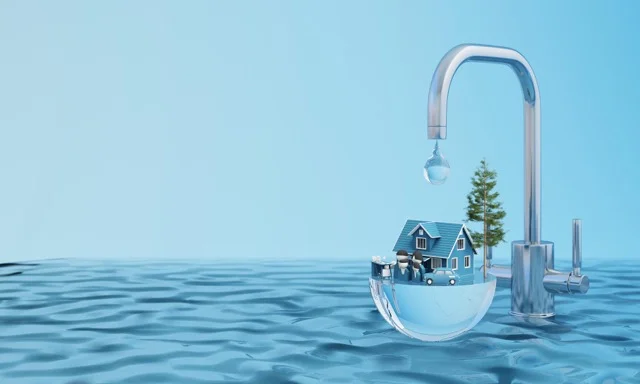Examine This Report on Reclaim Waste
Table of ContentsAll about Reclaim WasteReclaim Waste Things To Know Before You Get ThisThe smart Trick of Reclaim Waste That Nobody is Talking AboutHow Reclaim Waste can Save You Time, Stress, and Money.The 5-Minute Rule for Reclaim Waste
Domestic sewer waste refers to the waste and products from a domestic septic container. The appropriate monitoring and disposal of domestic sewer waste require fluid waste to be transferred to a sewage treatment plant where the correct methods and devices are used to purify and dispose of waste.
Business waste typically consists of potential risks, such as combustible products or a combination of liquid and solid waste items, and calls for an advanced and detailed disposal procedure. The disposal of commercial waste normally involves the purification of waste before transportation to make certain safe and appropriate disposal. Industrial waste is produced from byproducts and runoff of commercial processes and production.
This sort of waste can not use the exact same sewer administration transport or procedures as septic or commercial fluids. The industrial waste management process needs the assessment and screening of liquid waste before it goes through the disposal process (industrial wastewater treatment). Overflow waste is the liquid waste that comes from drainage and excess stormwater in very booming locations or cities
Overflow waste can trigger contamination and flooding if not managed appropriately. Discover more regarding drain cleansing and waste monitoring. Ensuring proper waste management can prevent catastrophes and minimize environmental damage. Both individuals in household settings and specialists in commercial or production industries can take advantage of comprehending the processes and regulations of fluid waste monitoring.
Reclaim Waste Things To Know Before You Buy
Call PROS Solutions today to find out about our waste management and disposal solutions and the appropriate means to take care of the liquid waste you generate.
(https://experiment.com/users/reclaimwaste1)Do you recognize what takes place to your water when you end, flush the commode or drain pipes the cleaning maker? No? Well, it's worth recognizing. This so-called 'wastewater' is not only an essential resource yet, after treatment, will certainly be released to our land, waterways or the sea. Utilized water from toilets, showers, bathrooms, kitchen sinks, washings and industrial procedures is referred to as wastewater.

water made use of to cool down machinery or tidy plant and devices). Stormwater, a type of wastewater, is overflow that moves from farming and city areas such as roof coverings, parks, gardens, roadways, courses and gutters right into stormwater drains pipes, after rain. Stormwater streams unattended directly to regional creeks or rivers, at some point reaching the ocean.
What Does Reclaim Waste Do?
In Queensland, most wastewater is dealt with at sewer therapy plants. Wastewater is delivered from residential or commercial websites with a system of drains and pump stations, known as sewerage reticulation, to a sewer therapy plant.
The Department of Natural Resources encourages regional governments about managing, operating and keeping sewerage systems and treatment plants. In unsewered areas, city governments may require owners to set up specific or household sewage treatment systems to deal with residential wastewater from toilets, kitchens, washrooms and washings. The Department of Natural Resources authorizes the use of home systems when they are proven to be reliable.
A lot of stormwater gets no treatment. In some brand-new neighborhoods, therapy of some stormwater to eliminate litter, sand and crushed rock has begun making use of gross contaminant traps. Wastewater therapy occurs in 4 stages: Gets rid of solid issue. Larger solids, such as plastics and various other items wrongly released to drains, are removed when more information wastewater is passed via screens.
Wastewater after that flows into big containers where solids work out and are gotten rid of as sludge. Grease and residue are skimmed from the surface. Uses small living organisms knows as micro-organisms to damage down and remove staying liquified wastes and great particles. Micro-organisms and wastes are integrated in the sludge. Removes nitrogen and phosphorus nutrients that might create algal flowers in our waterways and endanger aquatic life.
The Only Guide to Reclaim Waste
Nutrient elimination is not readily available at all sewage treatment plants since it calls for costly specialist devices. Clear liquid effluent produced after treatment may still have disease-causing micro-organisms - liquid waste disposal melbourne.

This typically means wastewater needs to be treated or pollutants removed prior to it can be released to rivers. Most wastewater flows right into the sewerage system. Under the Act, local governments administer authorizations and licences for environmentally pertinent activities (Periods) including wastewater releases that may have a local influence. The department provides approvals and permits to Ages involving wastewater launches that might have a local or statewide impact.
The Greatest Guide To Reclaim Waste
Or else, examples are taken for laboratory analysis. Usually numerous tests are needed to develop the degrees of each of the various pollutants such as oils, heavy metals and pesticides in water. Surveillance gives valid information regarding water high quality and can verify that permit problems are being fulfilled. The information acquired with tracking gives the basis for making water top quality decisions.